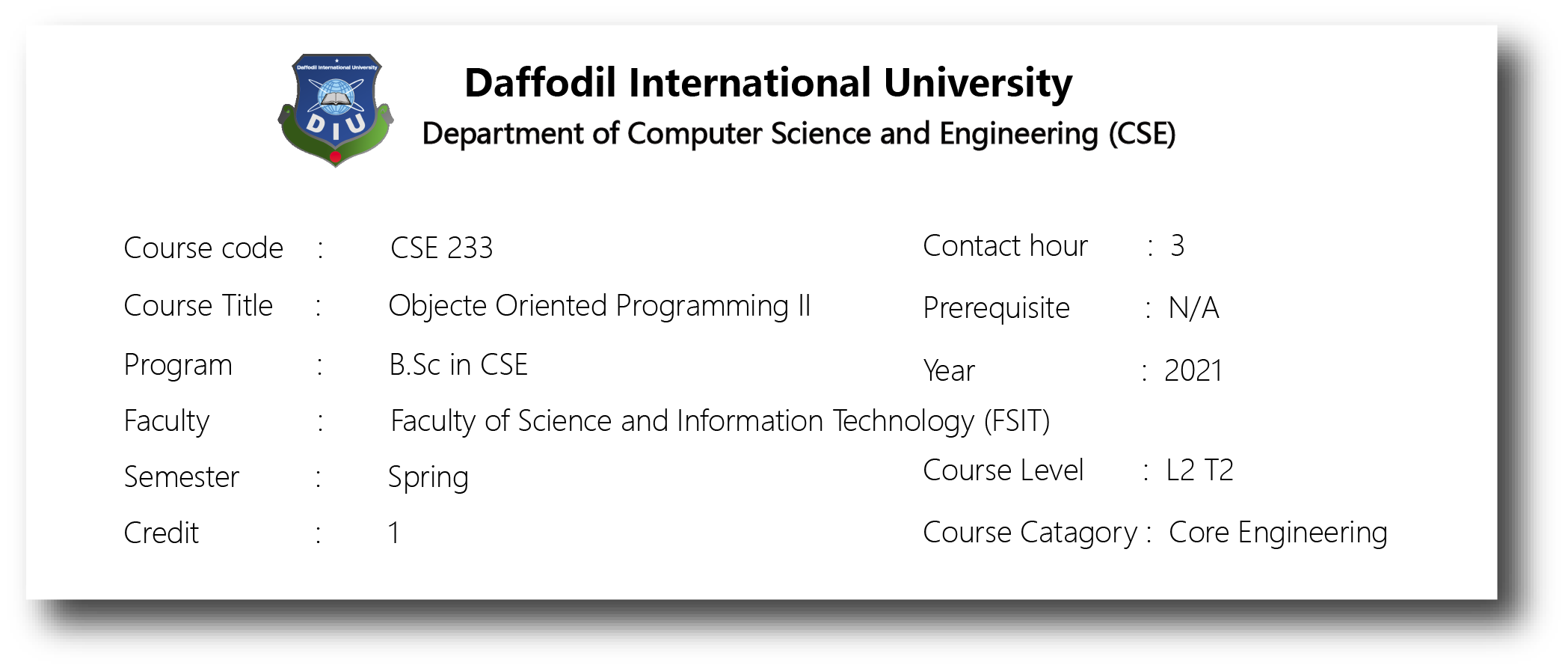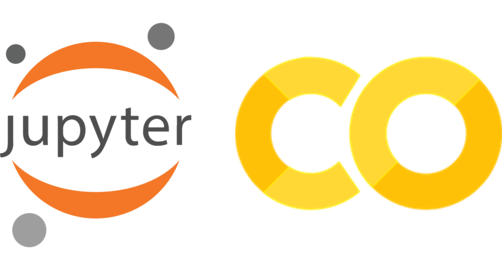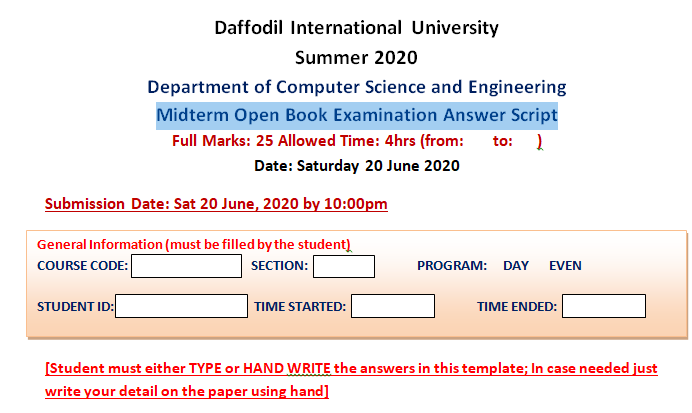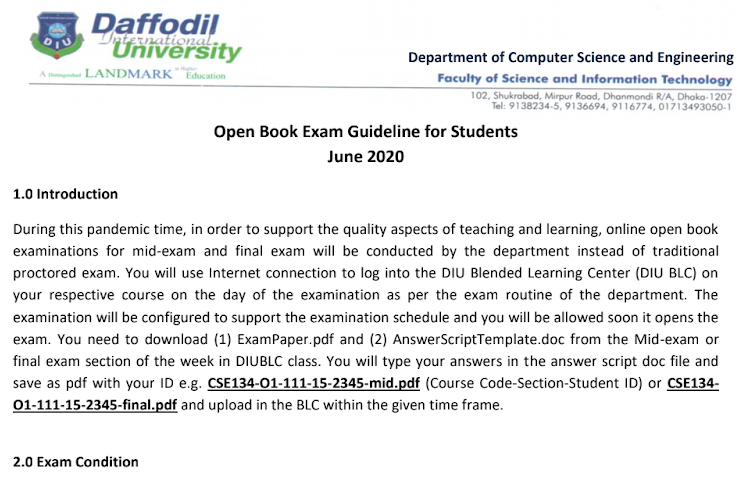Section outline
-

Course Code: CSE233 & CSE234 || Credits: 1+2 || CIE Marks: 60 || SEE Marks: 40
Dear Students,
Welcome to the 2021 Spring Semester!
Welcome back, Students. I can’t wait to see all your smiling faces again! . I am here to support you every step of the way.
I encourage you to make the most of your time here.
Remember to make it a great year. I will see you soon.

Course Description (from syllabus)/Rational:
Content will be based on upcoming popular and modern programming languages having demand in jobs for local and international markets at the time of offering. In the Fall 2020 semester, the course rational is defined from the context of Python-based Object-Oriented Programming with the basic skills of programming with Python. Introduction to Python programming; Control Statements and Program Development; Functions; Lists and Tuples; Dictionaries and Sets; Using Numpy for numerical computation; Using String; File and Exception Handling; Object-Oriented Programming: Introduction, Using Class and Method, Inheritance, Operator Overloading, Name Space and Scopes, Polymorphism; Named Tuples, Design Case Study.
Course Learning Outcome:
CLO1 Able to solve computational problem using Python programming CLO2 Able to develop object oriented solution using Python CLO3 Able to apply OOP and Python knowledge in solving problem
Teaching and Learning Activities (TLA)
TLA1 Interactive discussion using Online/multimedia or whiteboard. TLA2 Group presentation regarding related problems and assigned task. TLA3 Evaluation of class performances to reach each student in a class for
every topic.
Text Books:
1. Intro to Python for Computer Science and Data Science, Daitel & Daitel, Pearson 2020
Reference Books:
1. Programming with Python, T.R. Padmanabhan, Springer, 2016
2. Python for Data Analysis, Wes McKenny, O’Reilly, 2018Course Content Google Drive Link

Appointment in Google Calendar: Click Here
-
-
Fall 2020 Academic Calendar
-
Course Navigation
WK1, WK2, WK3, WK4, WK5, WK6, WK7, WK8, WK9, WK10, WK11, WK12, WK 13, WK 14, Midterm Exam Final Exam, Class Test#1, Class Test#2, Class Test#3, Assignment-1, Assignment-2, Presentation
-

Lesson-1:
- Introduction to Python;
- Variable; Arithmetic; Using print;
- Input from User; Objects and
- Dynamic Typing. (Ref. Text, 50-70)
Lab 01:
- Working with Jupyter
- Notebook and Google Colab (using Online editors)
Assessment and Mapping with CLO1
-
Course Content Link (Week-1):
-
-

Lesson-2: Operators; Control structures; Program development; Built-in functions; Augmented assignments. (Ref. Text, 74-108)
Lab 02: Problem-solving using Python-based on discussion.-
Course Content Link (Week-2):
Assessment and Mapping with CLO1
-
-
-

Lesson-3: Functions: define and using the function, Python standard library, Scope rules, Default parameter value. (Ref. Text, 120-148)
Discussion on Course Projects.
Lab 03: Working with functions
-
Course Content Link (Week-3):
Assessment and Mapping with CLO1
-
-
-

Lesson-4: Sequences: List and Tuples: Lists, Tuples, Unpacking Sequences, Sequence Slicing, Sorting List, Searching Sequences, Example Cases (Ref. Text, 156-175)
Lab 04: Working with Sequences using Google Colab
-
Course Content Link (Week-4):
Assessment and Mapping with CLO1
-
-
-

Lesson-5: Sequences: List and Tuples: Stack with List, List comprehensions, Expression, Filter, Map and Reduce, Sequence processing function, 2-D lists (Ref. Text, 176-193)
Lab 05: Working with Sequences using Google Colab
-
Course Content Link (Week-5):
Assessment and Mapping with CLO1
-
-
-

Lesson 6: Dictionaries and Sets: Create dictionary, Dictionary operations, Dictionary methods keys and values, Working with Set, Dynamic visualization (Ref. Text, 210-231)
Lab 06: Working with Dictionaries and Sets using Google Colab/ Jupyter notebook
-
Course Content Link (Week-6):
Assessment and Mapping with CLO1
-
-
-
-

Topics to cover in mid exam:
- Python Basic Code
- List, Set and Tuple
- Scenario based Question (Case-Study)
- Dictionary
-
MIDTERM ANSWER SCRIPT SUBMISSION LINK [CLICK BELOW]
-
Midterm_AnswerScript_Submission_Spring_21 (PC-A) URL
-
Midterm_AnswerScript_Submission_Spring_21 (A) URL
-
Midterm_AnswerScript_Submission_Spring_21 (Sec-G) URL
-

Lesson 7: OOP Using Python: defines class and object, encapsulation and data hiding, controlling access to attributes, properties for data access, example cases (Ref. Text, 356-370)
Lab 07: Working with OOP using Python in Google Colab/ Jupyter notebook
-
Course Content Link (Week-8):
Assessment and Mapping with CLO1 , CLO2
-
-
-
-

Lesson 8: OOP using Python: Inheritance in Python, Design Case Study, Design inheritance based on a real-life problem (Ref. Text, 370-391)
Lab 08: Working with OOP using Python in Google Colab/ Jupyter notebook
-
Course Content Link (Week-9):
Assessment and Mapping with CLO1 , CLO2
-
-
-

Lesson 9: OOP using Python: Operator overloading, Polymorphism, Handling exception, Named tuples, Using Card data types, design case study (Ref. Text, 390-410)
Lab 09: Working with OOP using Python in Google Colab/ Jupyter notebook
-
Course Content Link (Week-10):
Assessment and Mapping with CLO1 , CLO2
-
-
-

Lesson 10: Using NumPy: Array from existing data, array attributes, attay Operators, NumPy methods, Shallow copies, Deep copies, Examples (Ref. Text, 240-256)
Lab 10: Working with NumPy using Python in Google Colab/ Jupyter notebook
-
Course Content Link (Week-11):
Assessment and Mapping with CLO1
-
-
-

Lesson 11: Using NumPy: Universal functions, Indexing and slicing, Reshaping and transposing, Examples (Ref. Text, 252-267)
Lab 11: Group Project Presentation Sharing by Team Lead on behalf of the team
-
Course Content Link (Week-12):
Assessment and Mapping with CLO1 , CLO3
-
-
-
-

Lesson 12: Review class on topics discussed of Wk 8, Wk 9 and Wk 10 for preparing for the final exam
Lab 12: Lab Performance Test and Project based assessment of course projects
Assessment and Mapping with CLO1 , CLO2, CLO3-
Lab Assessment Test (based on course project presentation and final test)
-
-

Topics: Week 8, 9, 10
-
-
Final_Assessment_Submission_Spring_21 (Sec-PC-A) URL
-
Final_Assessment_Submission_Spring_21 (Sec-A) URL
-
Final_Assessment_Submission_Spring_21 (Sec-G) URL








































